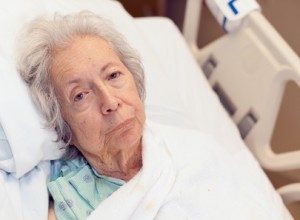Guest post by Marietta Faris, BSN
Maybe it happens for everyone and for every career, but it seems to me that nurses have their careers questioned more than others do. It could be that I have been a nurse for more years than I wish to state, and that every one of those years I see the question of “why” come up yet again. I do think it’s a good question though, and I even use it as an interview question when hiring new employees. I love telling the story of why I chose nursing myself, because that reason is very special to me.
One of the themes of the answers I get to the “why” question is that family members are or used to be nurses: “My favorite aunt worked as a nurse and I always looked up to her,” or “My mom’s a nurse and I loved the stories of helping with deliveries.” I have even had a few people talk about their fathers being nurses.
Another theme is having been present to see nursing in action when a family member was ill: “When my brother was sick as a kid the nurses were great to him,” and “I saw how comfortable the nurses made my grandma.” People coming to nursing as a second career are likely to talk about having been the caregiver in the family, for a grandparent or other relative.
For me, my career path was set by my father. My dad died at the age of 43. He left behind my mother and five children, of whom I am the youngest. The only memories I have of my father are stories people told me. One of these included his wish for one of his children to become a nurse. I took that wish as my own and decided I would deliver on his wish. Little did I know of the gift he had set before me in my nursing career.
As a young 18-year-old girl going off to nursing school, I had little understanding of what nurses really did. Growing up in rural Illinois, with no nurses in the family or in the local community, pretty much all of the nursing I knew was from television shows. (I’d list them but then you’d really know how old I am, let’s just say it was way before Gray’s Anatomy.)
I had worked for three months at the local nursing home. The patients there were not actually ill, they were just older and required help with the basics. I learned some of the physical skills I would need later but did not learn anything about nursing as I would come to know it.
Nursing started to come into focus for me when I was assigned to care for an elderly man who had come to the hospital after he was beaten and robbed by a home invader. I had never had anyone hold my hand so tight. He needed me to just be there with him, to show him someone cared, to reassure him that I would help keep him safe. This was nursing. This was caring. This was the first of many times I would be present when a patient needed me for more than the meds I could give or the assessment skills I had. I was in a position to comfort their spirits or share their pain or celebrate their recovery.
I may not remember the time I had with my dad as a child, and only have the memories of him from stories shared with me. He was not there for my graduation from high school or from nursing school. I missed him at my wedding. He will never shake hands with his grandson. Yet, he is here with me every day of my career, for it was his gift to me. Thanks, Dad.


